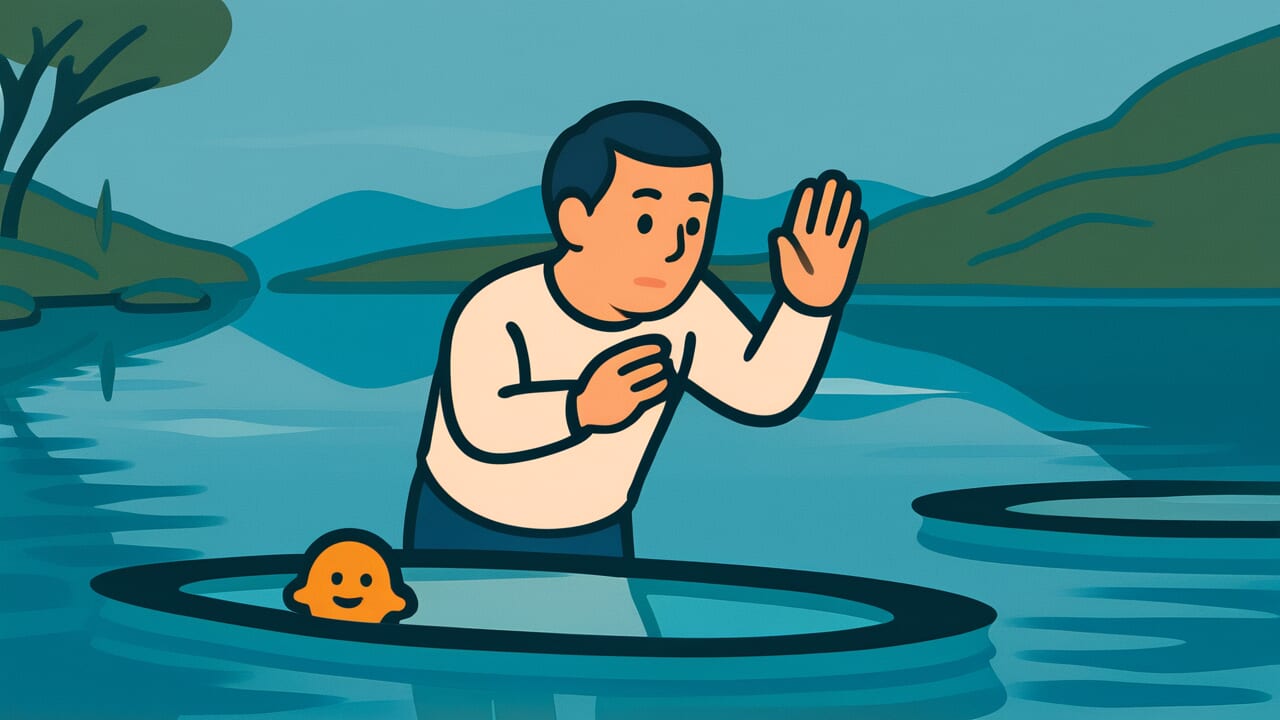How to Read “Know thyself”
Nanji jishin wo shire
Meaning of “Know thyself”
This proverb teaches the importance of understanding your own abilities, personality, and limitations correctly.
People often overestimate or underestimate themselves. Calmly recognizing what you’re good at and what you’re not, what you can do and what you can’t, becomes the foundation for walking through life.
This saying is used to advise someone who failed due to overconfidence. It also serves as a warning to those attempting reckless challenges by misjudging their abilities. People quote it when explaining the importance of self-analysis.
In modern times, it holds special meaning for career choices and relationships. By accurately grasping your values, strengths, and weaknesses, you can set appropriate goals and design a realistic life plan.
When self-awareness deepens, you won’t be swayed by comparisons with others. You can choose a way of living that’s true to yourself.
Origin and Etymology
This proverb comes from the ancient Greek maxim “Gnothi Seauton” inscribed at the entrance of Apollo’s temple in Delphi.
The philosopher Socrates valued these words as the foundation of his own philosophy. This made the phrase widely known.
Socrates is famous for his concept of “knowing that you know nothing.” This taught the importance of self-awareness—recognizing your own ignorance.
He used a dialogue method to help people realize their ignorance and assumptions through repeated questioning. The teaching “Know thyself” is believed to have been at the root of this approach.
This phrase came to Japan after the Meiji era with the introduction of Western philosophy. It spread among Japanese intellectuals through Christian missionary work and translations of Western thought.
This teaching about the importance of looking inward resonated with traditional Japanese spiritual culture, including Zen thought. It seems to have been accepted relatively quickly.
Wisdom born in ancient Greece came to be cherished in Japan across time and place.
Usage Examples
- I kept failing at interviews, but when I remembered the words “Know thyself” and redid my self-analysis, I could see what work really suited me
- He makes unrealistic plans without knowing his limits, so I advised him to “Know thyself”
Universal Wisdom
Humans have a strange duality. We should know ourselves better than anyone, yet we actually understand ourselves the least. Why does this contradiction exist?
It comes from the difficulty of seeing ourselves objectively. We always see the world through our own eyes, so we cannot observe those eyes themselves.
Also, pride and desires get in the way. We turn away from aspects of ourselves we don’t want to see. We tend to exaggerate what we’re good at and minimize what we’re bad at.
Even more serious is not realizing that you don’t know yourself. The shallower your knowledge and experience, the more unaware you become of your ignorance.
When you can do something a little, you fall into the illusion of understanding everything. This assumption causes many failures and suffering in life.
Ancient sages carved these words into their temple because they understood that self-awareness is the starting point of wisdom.
Knowing yourself correctly creates humility and opens the path to true growth. As a challenge humans should work on throughout their lives, this teaching continues to question us even today.
When AI Hears This
The act of trying to know yourself contains the same structure as the observation problem in quantum mechanics.
In the quantum world, when you try to measure an electron’s position, the light used for measurement hits the electron and changes its velocity. The act of observation itself changes the object.
Self-awareness is the same. For example, the moment you observe yourself as “I have a short temper,” two positions are born in your brain: “the observing me” and “the observed me.”
Then when you’re about to get angry next time, a circuit works that confirms “See, I really do have a short temper.” You react to small events you could have normally let go. Observation strengthens the object.
Even trickier is the similarity to the uncertainty principle. Just as measuring an electron’s position precisely makes its velocity uncertain, the more you analyze one aspect of yourself, the less you see other aspects.
The moment you define yourself as “I am logical,” your emotional self and intuitive self disappear from the observation range.
In other words, complete self-awareness may be fundamentally impossible. As long as the observation device and observation object are identical, measurement itself distorts the results.
Lessons for Today
In modern society, knowing yourself is becoming increasingly important. On social media, you only see others’ successes, and you may often feel anxiety or inferiority comparing yourself to them.
But comparing yourself to others is meaningless. What matters is having your own axis.
The first step to knowing yourself is taking time for regular reflection. What did you feel today? What was enjoyable? What caused you stress?
These small accumulated insights teach you who you really are. Also, listening to honest opinions from people you trust is important. Others can see blind spots you cannot.
Knowing your limits is not giving up. Rather, it clarifies where you should focus your energy, allowing you to grow efficiently.
Instead of forcing yourself to overcome weaknesses, extending your strengths lets you shine in your own way. Knowing yourself correctly is also cherishing yourself.
You are valuable enough just as you are.



Comments